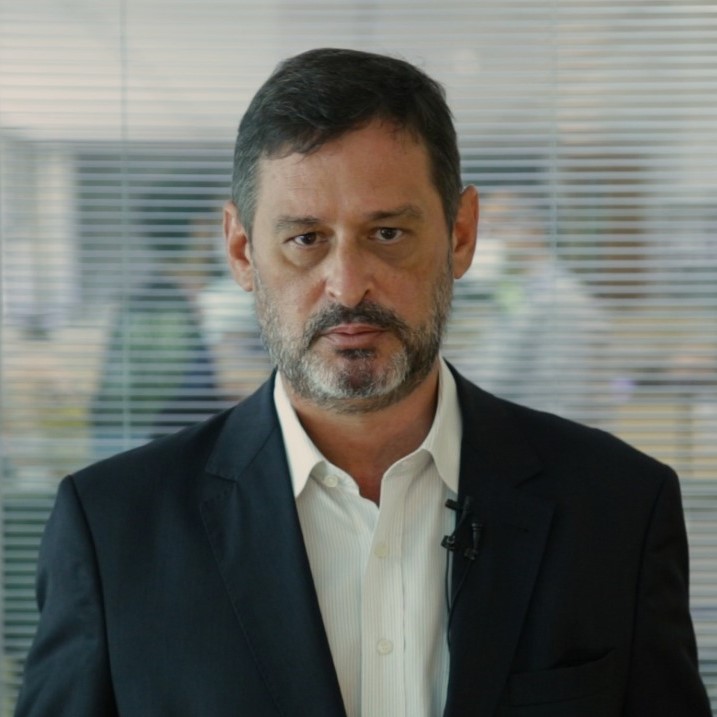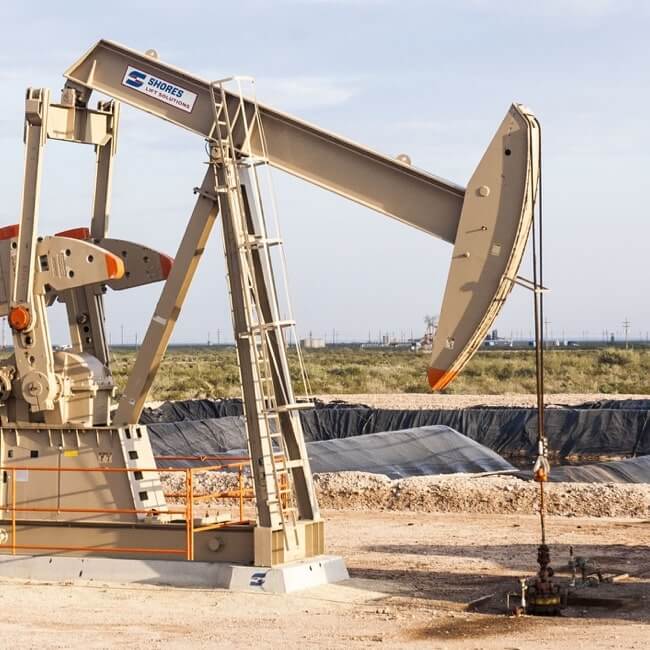'There is a future for gas in Rio de Janeiro'

Representatives of Rio de Janeiro state and several gas companies have met to discuss industrialization.
Gas producers, consumers and infrastructure agents took part in the meeting on Tuesday.
“The players we met expressed an immediate perception that there is a future for gas in Rio de Janeiro. My impression was the best possible,” the state’s economic development secretary, Leonardo Soares, told BNamericas.
In this interview, Soares also talks about plans to unlock investments, and he presents an overview of the main projects and initiatives underway.
BNamericas: What’s the takeaway from the meeting with the agents of the natural gas sector earlier this week?
Soares: They expressed an immediate perception that there is a future for gas in Rio de Janeiro.
My impression was the best possible. We are working on four axes of economic development. First the Açu port, Macaé and the Campos triangle [in the north]. Second, the Gaslub complex [in Itaboraí]. The third in Itaguaí [port and industrial complex in the state’s metropolitan region], and the fourth is the Japeri/Itatiaia axis [an automotive industrial hub in Médio-Paraíba region].
The goal is to combine logistics with concessions such as the new Dutra highway [linking Rio de Janeiro and São Paulo] and to combine this with the expansion of the flow and consumption of oil and gas.
We want to refute some erroneous statements claiming there is an inability to absorb gas production in Rio de Janeiro. This is not true, as [development bank] BNDES has already shown through studies. So we are organizing forums in which we bring together suppliers, consumers and infrastructure agents. We want to analyze the scenario also from the perspective of those who intend to settle in the state.
Editor’s note: Watchdog ANP said Rio de Janeiro was the largest natural gas producer in Brazil with 82.5Mm3/d (million cubic meters per day) in March through 37 offshore fields. However, much of the output is reinjected to increase oil recovery, given the lack of infrastructure to take it to the coast. This bottleneck will be partially solved when the Rota 3 pipeline, connecting the pre-salt to Itaboraí, begins operations in 2022.
BNamericas: How does the government intend to stimulate natural gas projects in the state? What are the main planned initiatives?
Soares: The gas serves as an input for several kinds of manufacturers, such as fertilizer and glass producers. We have already managed, for example, to adhere to an agreement with [federal finance policy council] Confaz, designed to equalize the [service and industrial product tax] ICMS on national and imported fertilizers in the next four years.
We are also identifying the need for new gas pipelines and directing gas supplies to industrial hubs. It is important to promote the densification of companies that complement each other in industrial chains. We recently approved a law to make thermoelectric plants more competitive, reducing ICMS, matching the treatment given by Espírito Santo state for imported gas and São Paulo for national gas.
And we oblige those who enjoy this benefit to invest 2% of their revenue in projects related to industries of the future in Rio de Janeiro state. We are setting up a virtual shelf of R&D projects in the energy area in which they can invest. It is being tested, we will publish a call for projects, and the expectation is that in June it will come online.
BNamericas: Are there investment goals and growth targets in terms of production and sales or number of new gas consumers in Rio de Janeiro?
Soares: By the end of next year, total investments in Rio de Janeiro state could reach 150bn reais, in large extent linked to the natural gas sector.
An immediate task is to make the state's industrialization feasible, and this is preceded by civil construction, which is one of the most important actions the state can take at this moment: to create jobs. I am talking about the construction of thermoelectric plants, gas pipelines, besides highway concessions and services such as water and sewage, as happened with [public water utility] Cedae recently.
And within five years we will be able to generate a modern and intelligent industrialization, capable of qualifying labor in line with the current times.
BNamericas: Have the new rules regulator Agernesa established in 2020 to spur gas market liberalization yielded positive results?
Soares: I took the [state secretary] position at the end of December. In the first month, I used to receive around five potential investors in the natural gas sector per week. Today there are almost 10 a day. Recently, BNDES, Braskem, Equinor, Petrobras, Shell, Compass, Furnas, Gerdau, Sepetiba Tecon, Ternium and Tenaris attended the forum that brings together stakeholders from Itaguaí.
BNamericas: Will Petrobras build a thermal plant in Itaboraí? What are your expectations regarding the Gaslub complex?
Soares: This is very close, I am very sure that it will happen. It is not a question of ‘if’ but of when.
The local [natural gas processing unit] UPGN is expected to start operating in the first quarter of 2022. That area is at the center of an exceptionally favorable logistics interconnection, which matches the Rio de Janeiro highway concession plan.
Next week, I will be meeting with Petrobras and representatives of Itaboraí city to put on paper the concrete planning of actions aimed at attracting industries with gas connectivity.
BNamericas: Have companies signaled interest to settle in Rio de Janeiro?
Soares: We have already received investment plans, especially from automotive industries. All of them have expansion plans, including for the manufacture of hybrid vehicles. Companies linked to the oil and gas chain as well. And we have helped install a fertilizer plant in the state, in the Açu port, among others, thanks to the ICMS reduction on fertilizer production.
BNamericas: Do you have plans to reactivate the shipbuilding industry? If so, what’s the strategy considering strong competition from Asia and the reduction of local content requirements?
Soares: We recently participated in a public hearing organized by the Rio de Janeiro parliamentary committee of the shipping industry. We also received unions, including [national shipbuilding industry union] Sinaval.
The price waves of the oil industry, with the volatility of the barrel price, give us no guarantee of continuity. So we need to diversify the shipbuilding industry, aiming, for example, at decommissioning services. We have quality and respect for the international labor organization [ILO] standards, which our competitors do not always follow.
BNamericas: Do you plan to offer tax incentives for shipbuilders?
Soares: We have a rule to assess the business model beforehand and then offer tax benefits. The opposite does not work. It is necessary to ensure that the business will generate benefits for the state. This is what we did in the case of thermoelectric plants, which generate the possibility of reindustrialization.
Subscribe to the leading business intelligence platform in Latin America with different tools for Providers, Contractors, Operators, Government, Legal, Financial and Insurance industries.
News in: Oil & Gas (Brazil)

Local and foreign groups betting on Brazilian biofuels to cut emissions
The initiatives mostly involve road transportation, but there are also cases of river, sea and aviation fleet research and commercial undertakings.

'Brazil has gigantic potential when it comes to green hydrogen'
Sérgio Augusto Costa, president of the local industry association, believes the country could become one of the world's largest exporters of the fuel.
Subscribe to Latin America’s most trusted business intelligence platform.
Other projects in: Oil & Gas (Brazil)
Get critical information about thousands of Oil & Gas projects in Latin America: what stages they're in, capex, related companies, contacts and more.
- Project: FAZENDA ALTO DAS PEDRAS
- Current stage:

- Updated:
1 month ago
- Project: Pama-m-265_r11
- Current stage:

- Updated:
3 years ago
- Project: S-M-1711_OP3
- Current stage:

- Updated:
1 year ago
- Project: ALS032 AREA
- Current stage:

- Updated:
6 months ago
- Project: ALWAYS
- Current stage:

- Updated:
6 months ago
- Project: WILL WANT
- Current stage:

- Updated:
6 months ago
- Project: SAINT DOMINGOS
- Current stage:

- Updated:
6 months ago
- Project: FORQUILHA RIVER
- Current stage:

- Updated:
6 months ago
- Project: BPOT-10
- Current stage:

- Updated:
6 months ago
- Project: VÁRZEA REDONDA
- Current stage:

- Updated:
6 months ago
Other companies in: Oil & Gas (Brazil)
Get critical information about thousands of Oil & Gas companies in Latin America: their projects, contacts, shareholders, related news and more.
- Company: Topsoe do Brasil Tecnologia e Serviços em Catalisadores Eireli
-
The description included in this profile was taken directly from an official source and has not been modified or edited by the BNamericas’ researchers. However, it may have been...
- Company: Sotreq S.A. (Grupo Sotreq)
-
The description contained in this profile was taken directly from an official source and has not been edited or modified by BNamericas researchers, but may have been automatical...
- Company: Vast Infraestrutura S.A. (Vast Infraestrutura)
-
We are a company dedicated to offering infrastructure and logistics solutions for the safe, clean, efficient and sustainable movement of liquids for the energy market.
- Company: Engecampo Engenharia Industrial (Engecampo)
-
The description contained in this profile is taken directly from an official source and has not been edited or modified by BNamericas researchers, but may have been machine tran...
- Company: Geosea Investigações Geotécnicas
- Company: Catavento Consultoria
- Company: Vopak Brasil S.A. (Vopak Brasil)
-
The description included in this profile was taken directly from an official source and has not been modified or edited by the BNamericas’ researchers. However, it may have been...
- Company: GeoPark Brasil Exploração e Produção de Petróleo e Gás Ltda. (GeoPark Brasil)
-
GeoPark Brasil Exploração e Produção de Petróleo e Gás Ltda., the Brazilian subsidiary of Latin American junior GeoPark Ltd., is an oil and gas explorer, operator and consolidat...





